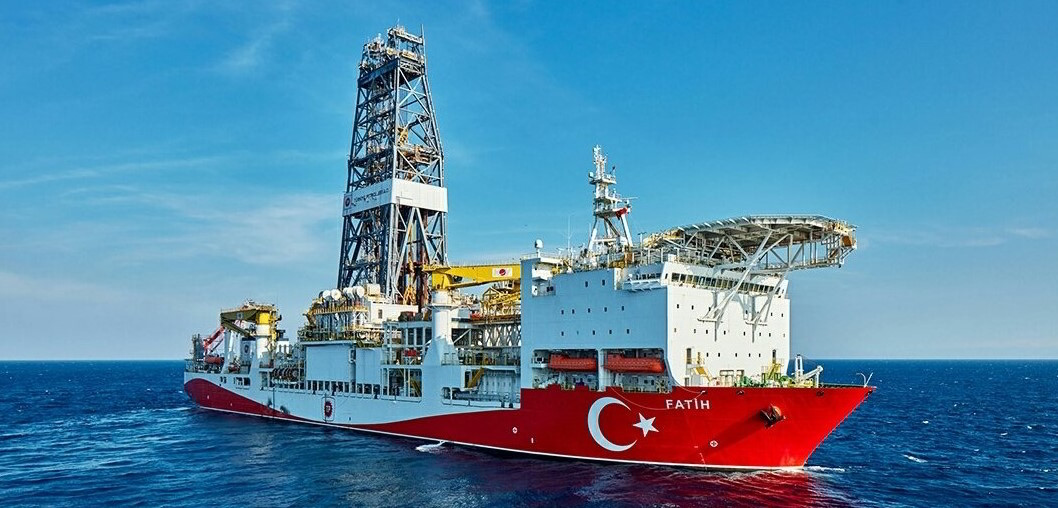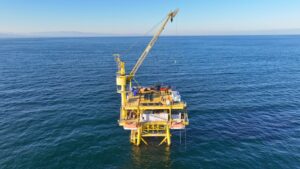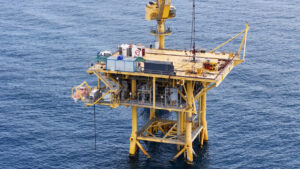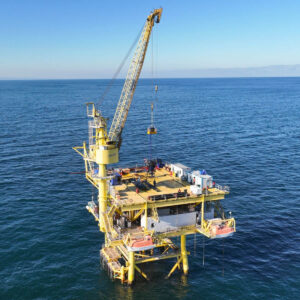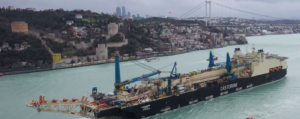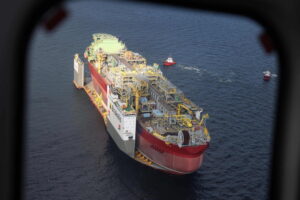‘World’s fastest offshore field development’ on stream, as first gas flows from huge Black Sea project
With the global energy crisis running the show, countries around the globe are working to strengthen the security of their energy supply. In line with this, Türkiye’s government and its national oil and gas company, Türkiye Petrolleri A.O. (TPAO), have tucked a new milestone under their belt with the achievement of first gas from a giant natural gas project in the Black Sea. While this is one of Türkiye’s largest energy projects ever built, the country also sees it as the world’s shortest offshore field development project from the first discovery to production.
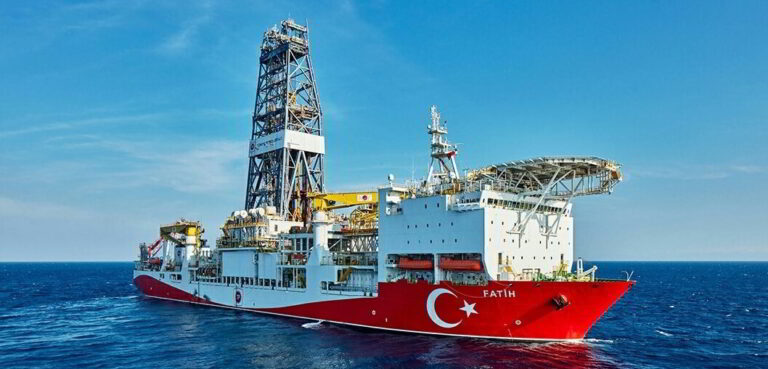
Türkiye has been working on building its energy independence long before the global energy crisis hit the world. The country’s efforts towards this goal are demonstrated by the arrival of its first drillship, Fatih, in 2017, Yavuz in 2018, Kanuni in 2020, and Abdülhamid Han, in 2021. The first of these drillships discovered the giant Sakarya gas field in August 2020.
This gas development project entails the establishment of a subsea production facility at a depth of 2,200 meters, 170 kilometres north of Filyos, the construction of a gas receiving and processing terminal on the Filyos shore, and the construction of pipelines to connect two units on land and sea.
To this end, TPAO started laying pipes in June 2022 to connect the processing facility and the subsea production facility as part of the project development and completed the work last year. Following a natural gas discovery, announced in December 2022 at Çaycuma 1 block by the Fatih drillship, Türkiye’s natural gas reserves of 540 bcm were revised to 652 bcm, bringing the country’s total natural gas reserves in the Black Sea to 710 bcm.
Based on TPAO’s previous timeline, the Sakarya project was expected to deliver the first gas in the first quarter of 2023, most likely in March. However, the massive earthquakes, which recently befell Türkiye and Syria, caused delays for various projects, thus, the first Black Sea gas to reach Filyos was bumped to 20 April 2023.
In an update on 20 April 2023, Türkiye’s Minister of Energy and Natural Resources, Fatih Dönmez, confirmed the achievement of first gas, adding: “When the project reaches full capacity, it will meet approximately 30 per cent of Turkey’s current natural gas needs. In other words, our discovery has the capacity to meet the 35-year natural gas needs of all residences on its own.”
During the Black Sea natural gas commissioning ceremony, which was held at the Filyos gas processing facility, Dönmez reminded that a lot of drilling has been done with foreign companies in the Black Sea before, however, “Türkiye had to make a decision. Either we would continue in this way or we would continue with our own ships, our own human resources and our own technology. We chose the latter. With a domestic and national energy policy, we included exploration and drilling vessels in our fleet.”
Türkiye’s Minister of Energy and Natural Resources further emphasised that more than 50 ships are working in the field for the country’s energy independence while 10,000 people are working hard to bring the Black Sea gas ahead of the 100th anniversary of the Republic of Türkiye.
“Black Sea gas has been recorded as the world’s fastest offshore field development project from the first discovery to production. We will produce 10 million cubic meters of natural gas per day from wells and 40 million cubic meters of natural gas from 40 wells in the second phase. When the project reaches full capacity, it will alone meet approximately 30 per cent of Turkey’s current natural gas needs,” added Dönmez.
Recep Tayyip Erdoğan, Türkiye’s President, commented: “We have reduced the time to make the discovered gas usable, which takes six-seven years in the world, to less than three years at our pace. The pride of this success, which emerged with the day and night work of approximately 10,000 personnel and 50 ships, belongs to our entire nation.”
Moreover, Dönmez explains that the project was finished in “a record time” despite the COVID-19 pandemic, global crisis and earthquakes. According to Türkiye’s Minister of Energy and Natural Resources, 100 years ago, Sakarya was “one of the places where the torch of independence of the Republic of Türkiye was lit. And 100 years later, the big and powerful Türkiye’s torch of independence in energy is again from Sakarya, rising from the Sakarya gas field.”
While expressing his gratitude to Türkiye’s President – seen as the chief architect of the country’s domestic and national energy move – for his support and leadership from day one, Dönmez continued: “I would like to thank BOTAŞ and contractor companies and our 85 million citizens who have never left us alone with their prayers. May the Black Sea gas be beneficial, auspicious and fruitful.”
In a separate statement, Wood Mackenzie, an energy intelligence group, highlights that the first gas flowing from the Sakarya Phase I kick-starts Türkiye’s upstream sector transformation, making the country less reliant on gas imports.
In light of this, Ashley Sherman, Research Director, Caspian & Europe Upstream Oil and Gas for Wood Mackenzie, remarked: “Sakarya Phase I redefines the scale of Türkiye’s upstream sector, bringing its first deepwater output and a fundamental shift in domestic energy security. To date, Türkiye has relied almost entirely on gas imports to meet its demand.
“Sakarya Phase I will put a sizeable dent into the country’s energy import bill, which reached an eye-watering $97 billion in 2022. But Phase II would be the real gamechanger, enabling Sakarya to cover almost 30 per cent of Türkiye’s gas consumption by 2030.”
Based on Wood Mackenzie’s understanding, Phase I will ramp up to its plateau of 350 million cubic feet per day (mmcfd) – 3.7 billion cubic meters a year – from 10 wells, five of which will produce from the start, raising Türkiye’s national gas output nearly tenfold by the end of the year.
“Sakarya Phase I is a major project delivery success for TPAO. It comes online less than three years since discovery in August 2020. Its fast-tracked lead time almost rivals Eni’s near-peerless Zohr in Egypt. TPAO never deviated from its 2023 start-up guidance, defying some initial scepticism,” underscored Sherman.
On the other hand, a full Sakarya development, to produce 1.4 billion cubic feet per day – 14.6 bcm a year – and more, is already in the spotlight. Sherman points out that the scale of Sakarya’s resource base has bolstered Türkiye’s negotiating power with its gas import suppliers since 2020.
“The political will to develop Sakarya quickly has been immense, especially with presidential elections looming. This project delivery success has been particularly impressive given TPAO’s lack of prior deepwater operating experience and the Black Sea’s logistical constraints,” emphasised Sherman.
Moreover, Wood Mackenzie outlines that further contracts, including with Russia and Iran, are up for renewal by the late 2020s and Türkiye could secure more favourable terms in extensions, although the firm believes that the continued development success at Sakarya will be fundamental to the country’s decision-making process.
“Türkiye’s deepwater Black Sea gas resources are of huge political and strategic importance. Sakarya is commercially attractive too – thanks to the country’s competitive gas pricing and fiscal terms. Nevertheless, risks abound in the Black Sea since Russia’s full-scale invasion of Ukraine in 2022. Although upstream milestones also await in Romanian and Bulgarian waters, the path to gas commercialisation could be far less smooth outside of Türkiye,” concluded Sherman.

